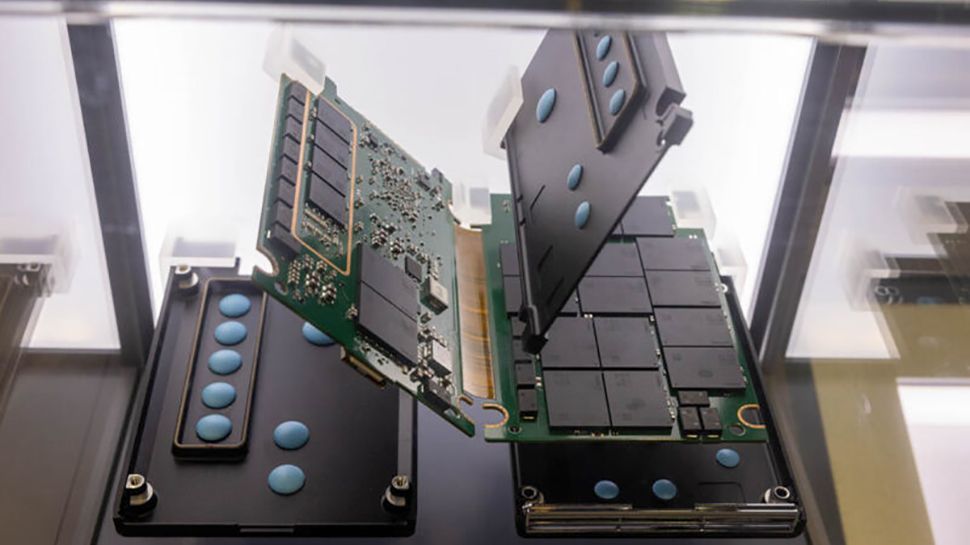High-capacity SSDs are becoming increasingly important as data storage demands continue to rise. Companies like Samsung, Huawei, and Phison have been hinting at future 128TB SSDs this year. These drives will provide a huge storage boost, essential for industries like artificial intelligence, big data, and cloud services, where large amounts of information need to be processed and stored efficiently.
Huawei’s 128TB SSD will be part of its Exabyte-capacity OceanStor A800 lineup, highlighting the need for such drives in large-scale data environments. Phison’s enterprise SSD platform, with its 128TB capacity potential, also demonstrates how these drives will play a pivotal role in handling high-performance, data-intensive applications.
Samsung recently unveiled its new 128TB SSD, the BM1743, at the Future of Memory and Storage 2024 event (formerly Flash Memory Summit). The drive, which features 122.88TB of usable storage, was shown off in a zoomed-in view, allowing attendees to take a look at its internals. ServingTheHomeThe booth, which covered the event, shared details and photos of the SSD’s internal structure, including its two PCBs filled with NAND and DRAM chips. However, booth representatives did not allow additional photos, limiting the angles available to view them.
One month retention
Billed as the industry’s largest QLC SSD, the Samsung BM1743 features a massive 128TB capacity with sequential read speeds of 7500MB/s and write speeds of 3000MB/s, along with a remarkable 45 percent improvement in power efficiency.
However, the drive does have one interesting caveat: it offers just one month of data retention, meaning that without power, data stored on the SSD can degrade after 30 days. This suggests that the BM1743 is designed for environments where data is continuously used and accessed regularly, such as large AI or cloud computing systems, rather than for long-term data storage.
The BM1743 uses QLC NAND, which is designed to increase storage capacity while keeping costs down. Samsung revealed that the SSD can achieve 45,000 random write IOPS at 16KB, reflecting an industry shift toward higher-performance benchmarks compared to traditional 4,000 IOPS measurements. The wider 16KB standard is becoming more common, especially in drives designed for high-capacity environments.
While the BM1743 was a key feature on Samsung's stand, it's not yet available for purchase in its high-capacity version. The focus on it at the event suggests Samsung is gearing up for its launch, but there's no indication as to when that will happen at the moment.








